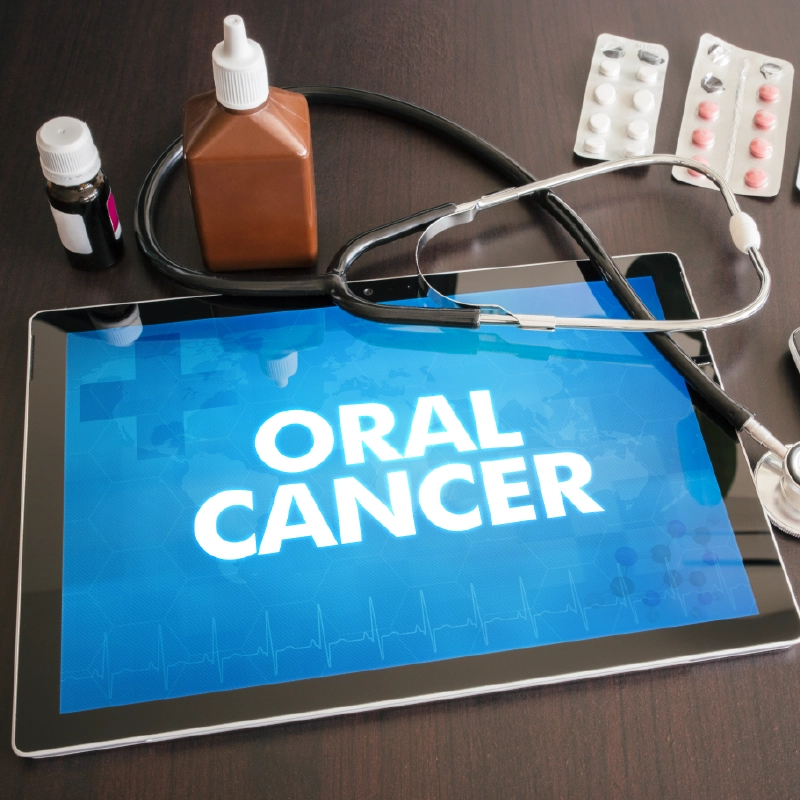
Oral cancer, also known as mouth cancer or oral cavity cancer, is a type of cancer that develops in the tissues of the mouth or throat. It can occur in any part of the mouth, including the lips, tongue, gums, and lining of the cheeks, as well as the salivary glands, tonsils, and pharynx.
The most common symptoms of oral cancer include mouth sores, pain, difficulty chewing or swallowing, and changes in the appearance or colour of the mouth or throat tissues. If you’re experiencing any of these symptoms, it is crucial to consult a top ENT specialist in Bangalore and get a thorough checkup. Risk factors for oral cancer include tobacco and alcohol use, exposure to certain viruses, and a family history of cancer.
Treatment may include surgery, radiation therapy, and chemotherapy. Early detection and treatment can improve the chances of a successful outcome.
Symptoms of Oral Cancer
The symptoms of oral cancer may include:
- A sore or lump in the mouth that does not heal
- Red or white patches on the gums, tongue, or lining of the mouth
- Pain or difficulty swallowing or chewing
- Persistent mouth or ear pain
- Change in voice
- Numbness or tingling in the mouth or lips
- Loose teeth or dentures that no longer fit well
- Unexplained weight loss
Treatment for Oral Cancer
The procedure for oral cancer treatment may vary depending on the stage and type of cancer but generally includes some combination of surgery, radiation therapy, and chemotherapy. The specific treatment plan will be determined by a medical team, like an oncologist, a surgeon, and/or a radiation therapist. In some cases, targeted therapy or immunotherapy may also be used. Early detection and treatment are important for successful outcomes.
Surgery
Surgery is a common treatment for oral cancer, particularly for early-stage tumours. The type of surgery may depend on the location and size of the tumour but may include excision (removal) of the tumour and surrounding tissue, lymph node removal, or reconstructive surgery to restore appearance and function. In some cases, surgery may be combined with other treatments such as radiation or chemotherapy.
Radiation Therapy
Radiation therapy uses high-energy rays or particles to destroy cancer cells. It may be used alone or in combination with surgery or chemotherapy. There are two main types of radiation therapy: external beam radiation, which uses a machine outside the body to deliver radiation to the affected area, and brachytherapy, which involves placing a radioactive source directly into or near the tumour. Radiation therapy may cause side effects such as mouth sores, dry mouth, and difficulty swallowing, but these can often be managed with medications or other interventions.
Chemotherapy
Chemotherapy uses drugs to kill cancer cells. It may be used alone or in combination with surgery or radiation therapy. Chemotherapy is typically administered in cycles, with a period of treatment followed by a period of rest to allow the body to recover. Side effects of chemotherapy may include nausea, vomiting, hair loss, and increased risk of infection.
Targeted therapy or Immunotherapy
In some cases, targeted therapy or immunotherapy may be used to treat oral cancer. Targeted therapy uses drugs that specifically target cancer cells, leaving the healthy cells.
Immunotherapy works by stimulating the body's immune system to recognize and attack cancer cells. These treatments may be used in combination with other therapies, or as a standalone treatment for advanced or recurrent oral cancer.
The specific treatment plan for oral cancer will depend on several factors, including the stage and location of the cancer, as well as the individual's overall health and preferences. It is crucial to work closely with a medical team, which may include an oncologist or radiation therapist, to develop a personalized treatment plan. Early detection and treatment are critical for successful treatment. You can see a doctor at Sakra World Hospital, the best ENT hospital in Bangalore if you experience any symptoms of oral cancer.

